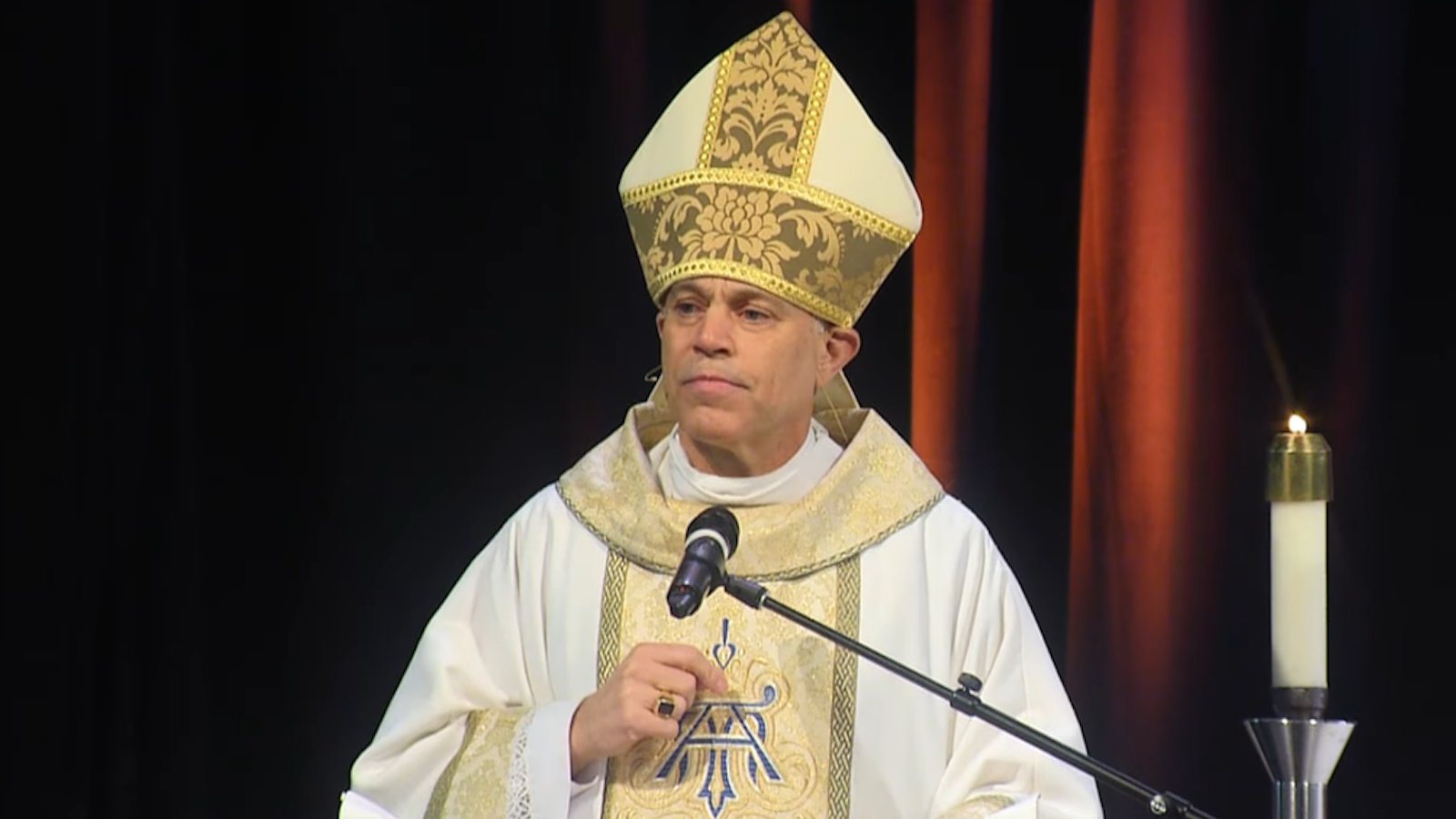
Archbishop Salvatore Cordileone | Wikimedia Commons
Michigan abolished the death penalty long before San Francisco Archbishop Salvatore Cordileone wrote his recent article saying America needs to do away with capital punishment.
Thus, it was little surprise that the Catholic Mobilizing Network (CMN) supports Cordileone’s assessment.
The CMN is proud that Michigan abolished capital punishment in 1963. Indeed, Michigan has not executed anyone since statehood, according to CMN, which describes itself on its website as a “national organization that mobilizes Catholics and all people of goodwill to value life over death, to end the use of the death penalty, to transform the U.S. criminal justice system from punitive to restorative, and to build capacity in U.S. society to engage in restorative practices.”
Cordileone wrote an article in America Magazine that focused on the Catholic teaching on the death penalty, saying that in the modern era, capital punishment is no longer necessary.
“Criminal justice is also social justice,” Cordileone tweeted recently to draw attention to the topic. “When crime rates soar, it is the least among us, the poor and minorities, who pay the highest price. But today we no longer need capital punishment to protect the common good.”
Abolishing the death penalty is a necessary good, Cordileone said, even though capital punishment is not an “intrinsic evil” on a par with abortion (the killing of an innocent life). He cited Pope Francis’ decision to revise the Catechism in 2018. The Catechism now describes capital punishment as “inadmissible because it is an attack on the inviolability and dignity of the person” and stating that the church works “for its abolition worldwide.”
Cordileone provided several reasons to back up his opinion. One is that it doesn’t act as a deterrent. He quoted a 2020 study from Japan (published by the Antonin Scalia Law School at George Mason University), that stated, “Neither the death sentence rate nor the execution rate has a statistically significant effect on the homicide and robbery-homicide rates, whereas the life sentence rate has a significant negative effect on the robbery-homicide rate.”
Cordileone also said the possibility of executing an innocent person should be reason to abolish the death penalty.
“Those of us who follow Jesus Christ must also consider this: Our Lord—who from the cross where he was wrongly executed called out, ‘Father, forgive them, for they know not what they do’ —teaches us that we must be concerned with the soul of the guilty,” Cordileone wrote in America Magazine, a Jesuit publication. “The death penalty abruptly ends the possibility of conversion and mercy.”
The Catholic Church as a whole opposes the death penalty. The U.S. Conference of Catholic Bishops (USCCB) referred to several recent papal statements to back that up.
”The new evangelization calls for followers of Christ who are unconditionally pro-life: who will proclaim, celebrate and serve the Gospel of life in every situation,” St. Pope John Paul II said in 1999. “A sign of hope is the increasing recognition that the dignity of human life must never be taken away, even in the case of someone who has done great evil. . . . I renew the appeal I made . . . for a consensus to end the death penalty, which is both cruel and unnecessary.”
Pope Francis wrote “Fratelli Tutti” a few years back, in which he reiterated Pope John Paul II's opposition to the death penalty. He called for Catholics to work toward the abolition of the death penalty, according to America Magazine.
"Today we state clearly that ‘the death penalty is inadmissible’ and the Church is firmly committed to calling for its abolition worldwide,” the pope wrote in his encyclical, which is considered an authoritative Church document.






 Alerts Sign-up
Alerts Sign-up